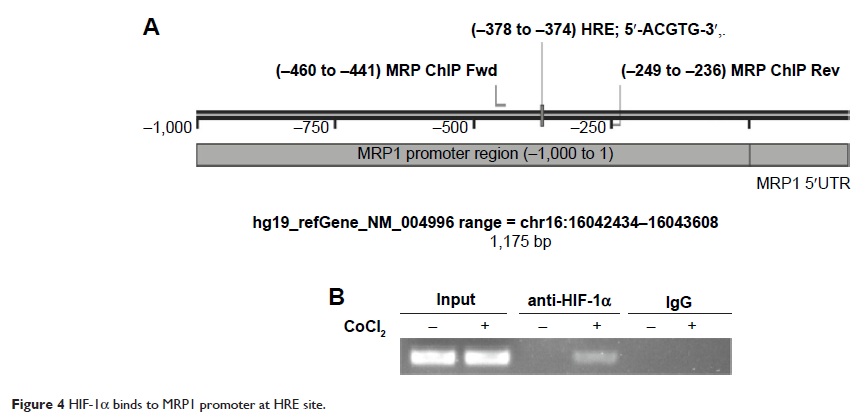109669
论文已发表
注册即可获取德孚的最新动态
IF 收录期刊
- 3.4 Breast Cancer (Dove Med Press)
- 3.2 Clin Epidemiol
- 2.6 Cancer Manag Res
- 2.9 Infect Drug Resist
- 3.7 Clin Interv Aging
- 5.1 Drug Des Dev Ther
- 3.1 Int J Chronic Obstr
- 6.6 Int J Nanomed
- 2.6 Int J Women's Health
- 2.9 Neuropsych Dis Treat
- 2.8 OncoTargets Ther
- 2.0 Patient Prefer Adher
- 2.2 Ther Clin Risk Manag
- 2.5 J Pain Res
- 3.0 Diabet Metab Synd Ob
- 3.2 Psychol Res Behav Ma
- 3.4 Nat Sci Sleep
- 1.8 Pharmgenomics Pers Med
- 2.0 Risk Manag Healthc Policy
- 4.1 J Inflamm Res
- 2.0 Int J Gen Med
- 3.4 J Hepatocell Carcinoma
- 3.0 J Asthma Allergy
- 2.2 Clin Cosmet Investig Dermatol
- 2.4 J Multidiscip Healthc

已发表论文
缺氧诱导因子 1α 可诱导结肠癌中的多药耐药蛋白
Authors Lv Y, Zhao S, Han J, Zheng L, Yang Z, Zhao L
Published Date July 2015 Volume 2015:8 Pages 1941—1948
DOI http://dx.doi.org/10.2147/OTT.S82835
Received 13 February 2015, Accepted 23 April 2015, Published 29 July 2015
Approved for publication by Professor Jianmin Xu
Abstract: Multidrug resistance is the major cause of chemotherapy failure in many solid tumors, including colon cancer. Hypoxic environment is a feature for all solid tumors and is important for the development of tumor resistance to chemotherapy. Hypoxia-inducible factor (HIF)-1α is the key transcription factor that mediates cellular response to hypoxia. HIF-1α has been shown to play an important role in tumor resistance; however, the mechanism is still not fully understood. Here, we found that HIF-1α and the drug resistance-associated gene multidrug resistance associated protein 1 (MRP1) were induced by treatment of colon cancer cells with the hypoxia-mimetic agent cobalt chloride. Inhibition of HIF-1α by RNA interference and dominant-negative protein can significantly reduce the induction of MRP1 by hypoxia. Bioinformatics analysis showed that a hypoxia response element is located at -378 to -373 bp upstream of the transcription start site of MRP1 gene. Luciferase reporter assay combined with mutation analysis confirmed that this element is essential for hypoxia-mediated activation of MRP gene. Furthermore, RNA interference revealed that HIF-1α is necessary for this hypoxia-driven activation of MRP1 promoter. Importantly, chromatin immunoprecipitation analysis demonstrated that HIF-1α could directly bind to this HRE site in vivo. Together, these data suggest that MRP1 is a downstream target gene of HIF-1α, which provides a potential novel mechanism for HIF-1α-mediated drug resistance in colon cancer and maybe other solid tumors as well.
Keywords: hypoxia, hypoxia-inducible factor-1α, multidrug resistance associated protein, transcriptional regulation, chemotherapy tolerance
